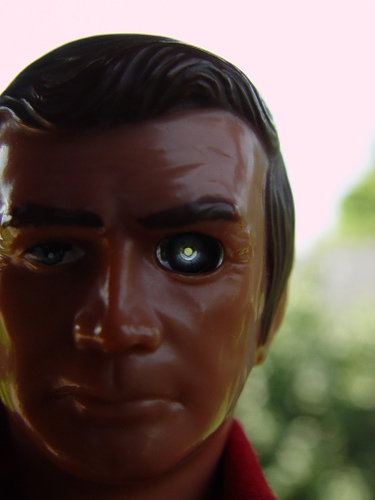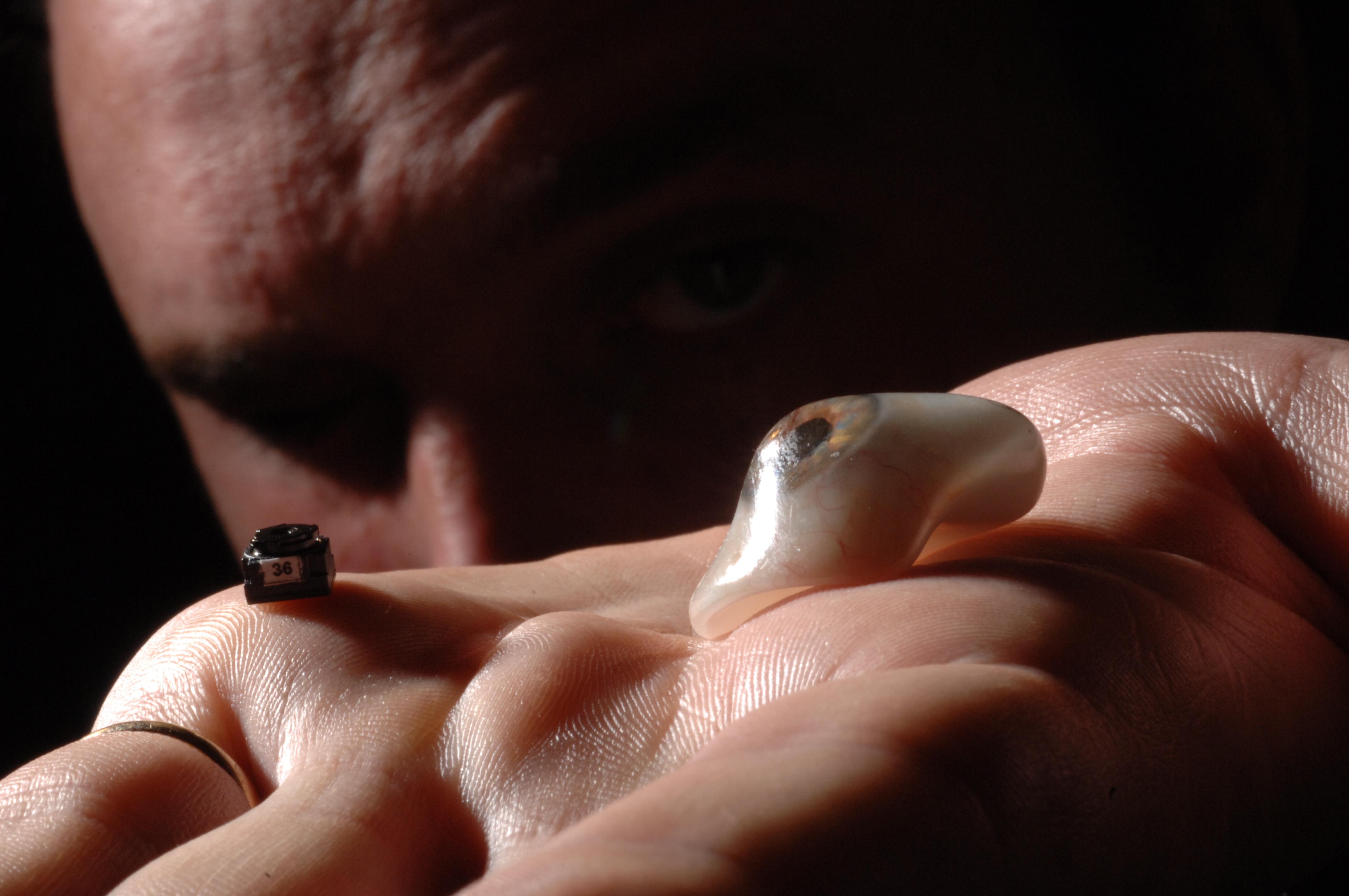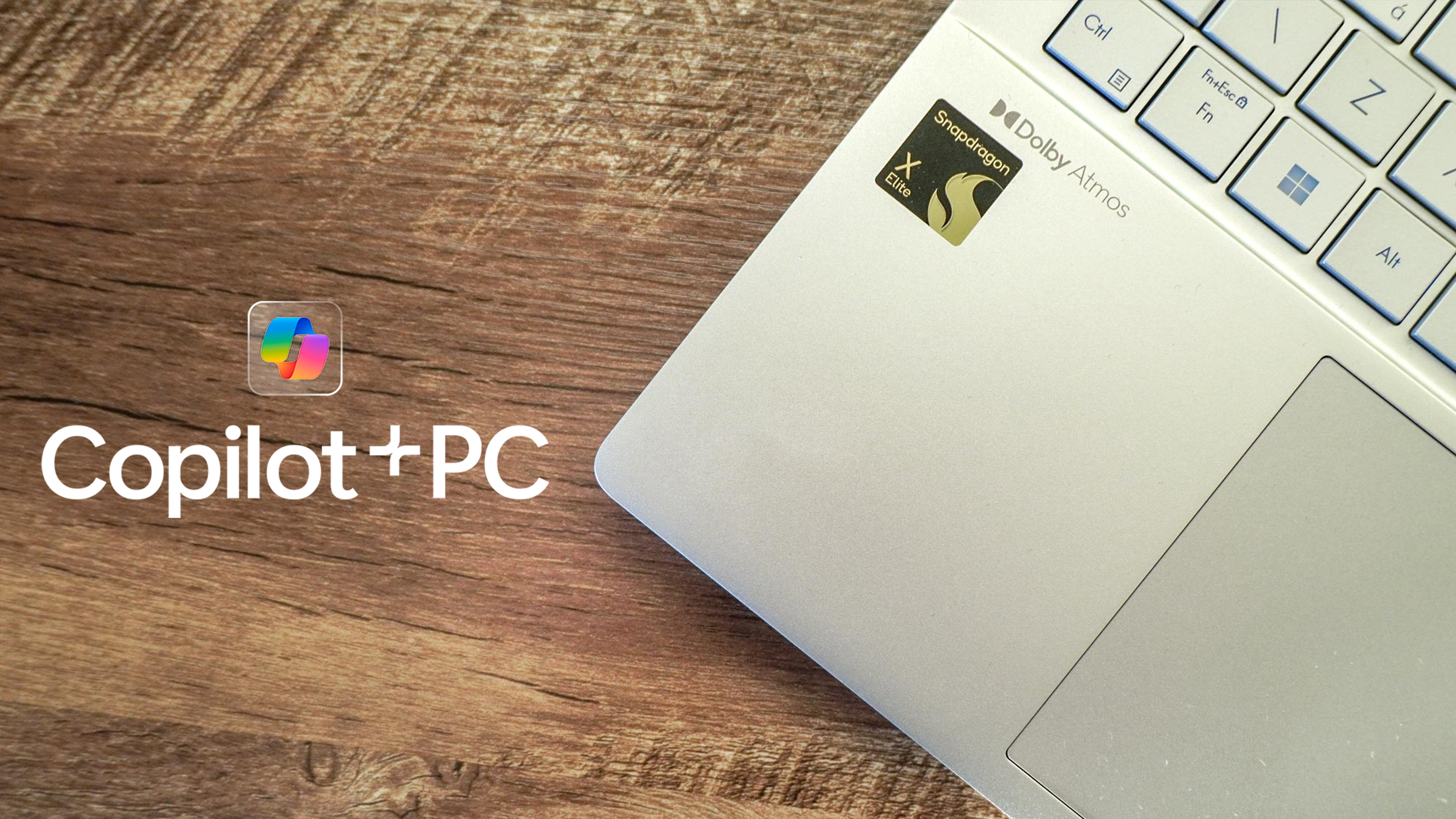Filmmaker To Implant Camera in Eye-Socket
Talk about entering cyborg territory: a Canadian filmmaker says that he plans to install a mini camera in his prosthetic eye.
Here at Tom’s Guide our expert editors are committed to bringing you the best news, reviews and guides to help you stay informed and ahead of the curve!
You are now subscribed
Your newsletter sign-up was successful
Want to add more newsletters?

Daily (Mon-Sun)
Tom's Guide Daily
Sign up to get the latest updates on all of your favorite content! From cutting-edge tech news and the hottest streaming buzz to unbeatable deals on the best products and in-depth reviews, we’ve got you covered.

Weekly on Thursday
Tom's AI Guide
Be AI savvy with your weekly newsletter summing up all the biggest AI news you need to know. Plus, analysis from our AI editor and tips on how to use the latest AI tools!

Weekly on Friday
Tom's iGuide
Unlock the vast world of Apple news straight to your inbox. With coverage on everything from exciting product launches to essential software updates, this is your go-to source for the latest updates on all the best Apple content.

Weekly on Monday
Tom's Streaming Guide
Our weekly newsletter is expertly crafted to immerse you in the world of streaming. Stay updated on the latest releases and our top recommendations across your favorite streaming platforms.
Join the club
Get full access to premium articles, exclusive features and a growing list of member rewards.

Talk about entering cyborg territory: a Canadian filmmaker says that he plans to install a mini camera in his prosthetic eye.
While it seems awkward to write about a man missing an eye, the idea of planting a camera into that empty eye-socket not only breathes in an aroma of science-fiction, but leads to the question of whether more individuals walking around in public--missing an eye no less--are watching us with those cleverly inconspicuous devices. In what may become a trend in the not-so-distant future, Canadian filmmaker Rob Spence, noted for his anti-surveillance documentaries, plans to actually install a mini camera into his prosthetic eye.
Why? According to Spence, to continue making documentaries while raising awareness about surveillance in society. Called The Eyeborg Project, Spence's "bionic eye" comprises of a mini-camera, a wireless transmitter, and a battery all mounted on a tiny circuit board. According to the press kit, Spence, 36, had his eye surgically removed after enduring ten years of pain; originally, the eye was badly damaged from a shotgun accident when he was 13. Now, living in Toronto, Canada as a filmmaker, Spence rallied the help of ex-engineer Kosta Grammatis and a team of ocularists, inventors, and engineering specialists to create the "bionic eye."

Building the eye proved to be difficult in an engineering sense, thus Kosta Grammatis set out to discover and implement the smallest, lightest, power efficient technologies. Thus, the prosthetic eye features the world's smallest CMOS camera - 1.5mm square to be exact, or as Spence puts it, "small enough to be lost in a sneeze." The video signal transmits wirelessly, picked up by an external RF Transmitter smaller than the tip of a pencil eraser. The entire "bionic" package feeds off lithium polymer battery technology, however, Grammatis said that he hoped the data will be sent and recorded via a backpack in the future. In no way does the device connect to his nerves or brain.
"Originally the whole idea was to do a documentary about surveillance. I thought I would become a sort of super hero ... fighting for justice against surveillance," Spence told Reuters. "In Toronto there are 12,000 cameras. But the strange thing I discovered was that people don't care about the surveillance cameras, they were more concerned about me and my secret camera eye because they feel that is a worse invasion of their privacy."
Frankly, they are correct. Technologies that allow humans to enter private areas and record private situations -whether it's changing clothes or sorting through financial information- should be banned despite their overall purpose. While Spence claims that he has no intention to serve as a "life-caster," meaning to film himself and others in a "reality tv" setting, he reassured that the camera would be switched off when not needed. Still, how tempting would it be to just flick on the eye and silently record the woman's cleavage across the room? Ultimately, Spence and Grammatis may be treading into dark territory, especially if the government gets a whiff of what the device can do.
Currently Spence is working on a documentary film about the Eyeborg Project and his experience of living with the bionic eye. Move over, Steve Austin.
Get instant access to breaking news, the hottest reviews, great deals and helpful tips.
Kevin started taking PCs apart in the 90s when Quake was on the way and his PC lacked the required components. Since then, he’s loved all things PC-related and cool gadgets ranging from the New Nintendo 3DS to Android tablets. He is currently a contributor at Digital Trends, writing about everything from computers to how-to content on Windows and Macs to reviews of the latest laptops from HP, Dell, Lenovo, and more.
-
chris312 Scary!Reply
Hey, 'comprises' actually means 'includes.' Instead of saying "...is comprised of..." it's more proper to say "...is composed of..." or "...consists of..." -
graviongr ReplyStill, how tempting would it be to just flick on the eye and silently record the woman's cleavage across the room?
That's actually pretty stupid, because he would have to be looking directly at the womans cleavage and it would be terribly obvious.
The better way to do this would be to embed this in a pin or a hat or something, and point it at her... while you inconspicuously look the other way / read a newspaper.
I hate all of this surveilance too though, I had extreme paranoia of being recorded in public restrooms or other people's homes. But I finally cured myself of that, because I have no control of whether they are or not anyways, and it was getting tiresome being constantly worried of this. -
Walking around like terminator!Reply
It would be nice to be able to connect it to the nerves!
That way, when installing an infra red, one can see in the dark! -
joebob2000 Frankly, they are correct. Technologies that allow humans to enterReplyprivate areas and record private situations -whether it's changing clothes or sorting through financial information- should be banned despite their overall purpose.
Wow, preach much? I must have missed the words "op ed" in the category title for this article... -
techtre2003 Correct me if I'm wrong, but since this is a prosthetic eye, he really won't be able to control what he's filming. Do prosthetic eyes move around or are they set to "look" straight ahead?Reply
It will be very interesting to see the footage!
 Club Benefits
Club Benefits










